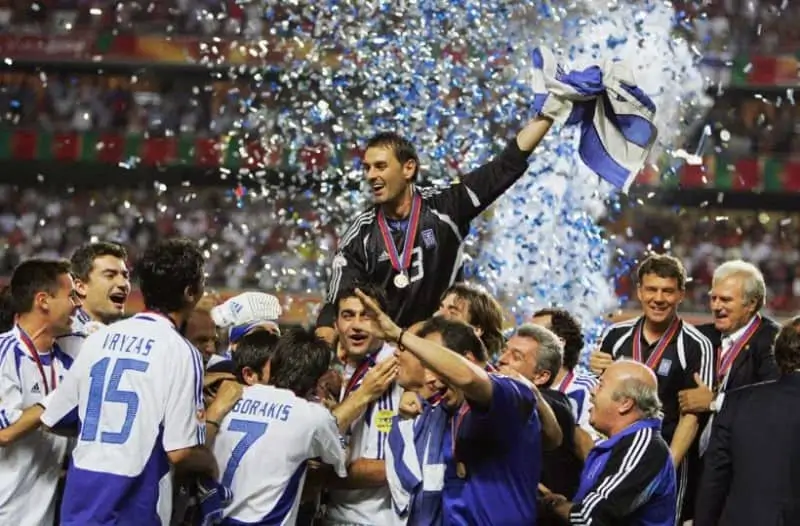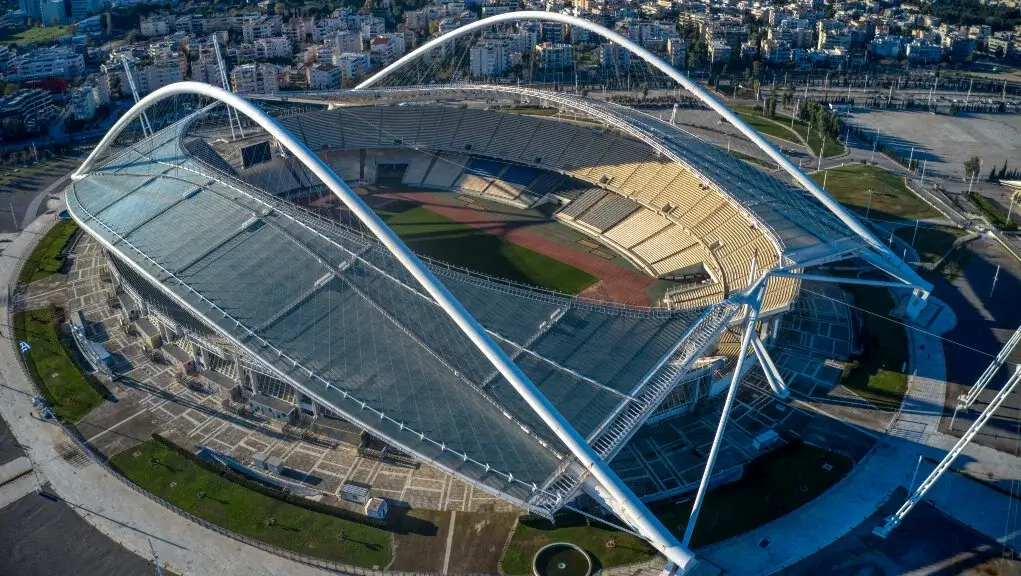The Greece national football team, known for its passionate players and dedicated fans, has a rich history that includes unforgettable moments and remarkable achievements. From its humble beginnings to its stunning victory at Euro 2004, the Greek team has significantly impacted global football. This guide explores football’s history, key players, coaches, and cultural significance in Greece.
The Origins of the Greece National Football Team
The Greece national football team was officially established in 1929, but its roots trace back to the early 20th century when football was gaining popularity in Europe. The first official match happened in 1929 against Italy, marking the beginning of Greece’s journey in international football. Over the decades, the team has evolved, overcoming numerous challenges to establish itself as a formidable force in European football.
Early Years and Development
The Greece national team faced several obstacles in the early years, including limited resources and infrastructure. Despite these challenges, the team participated in various regional competitions and friendly matches, gradually improving its skills and gaining valuable experience. The 1950s and 1960s laid the foundation for the team’s future successes.

Significant Milestones in Greek Football
Several milestones stand out in the history of Greek football. The team’s first major international tournament appearance was at the 1980 UEFA European Championship. Although they did not advance beyond the group stage, this experience was vital for the team’s development. Another significant milestone was qualifying for the 1994 FIFA World Cup, marking Greece’s debut on the world’s biggest football stage.
Golden Era: Euro 2004 Victory
The highlight of Greece’s football history is its stunning victory at Euro 2004. Under the guidance of German coach Otto Rehhagel, the Greek team defied all odds to win the tournament. In the final, they defeated several football powerhouses, including defending champions France and hosts Portugal. This victory brought pride to the nation and transformed Greece into a respected footballing nation.
Key Players in Greece’s Football History
Several players have left an indelible mark on Greek football. Giorgos Karagounis, known for his leadership and tenacity, played a pivotal role in the Euro 2004 triumph. Theodoros Zagorakis, the captain of the 2004 team, was instrumental in Greece’s success and was named the Player of the Tournament. Other notable players include Angelos Charisteas, who scored the winning goal in the Euro 2004 final, and Stelios Giannakopoulos, known for his versatility and skill.
Notable Coaches and Their Impact
Coaches have played a crucial role in shaping the Greek national football team. Otto Rehhagel is the most famous, leading the team to its most significant achievement at Euro 2004. His tactical understanding and ability to inspire his players were vital to Greece’s success. Other notable coaches include Alketas Panagoulias, who guided Greece to their first World Cup in 1994, and Fernando Santos, who led the team to Euro 2012 and the 2014 World Cup knockout stages.
Greece’s Playing Style and Tactics
The Greece national football team is known for its disciplined and defensive style of play. This approach was particularly evident during the Euro 2004 campaign, where the team relied on a solid defensive structure and effective counter-attacks. While some critics have labeled this style as conservative, it has proven successful for Greece numerous times.
Rivalries and Memorable Matches
Greek football has seen its share of intense rivalries and memorable matches. One of the most significant rivalries is with Turkey, fueled by historical and political tensions. Matches against Italy, Germany, and Portugal have also produced thrilling encounters, with the Euro 2004 final against Portugal standing out as the most memorable match in Greek football history.
Youth Development and Future Prospects
Youth development is crucial for the sustained success of any national team. Greece has made significant strides in developing young talent through academies and youth leagues in recent years. The future looks promising, with several young players showing potential to become key figures in the national team. Continued investment in youth development is essential for Greece to maintain its competitive edge.
Greece in World Cup Competitions
Greece’s World Cup journey has had its ups and downs. The team made its World Cup debut in 1994 but failed to advance past the group stage. They qualified again in 2010 and 2014, with their best performance coming in 2014 when they reached Round 16. Despite these challenges, the team strives for better results in future World Cup competitions.
The Impact of Euro 2004 on Greek Football
The Euro 2004 victory had a profound impact on Greek football. It boosted the national team’s confidence and inspired a new generation of players and fans. The victory increased attention to Greek football, leading to more significant infrastructure and youth development investments. It remains a source of national pride and a benchmark for future success.
Challenges Faced by the Greece National Team
Despite its successes, the Greece national team has faced several challenges. Financial difficulties, administrative issues, and inconsistent performances have sometimes hindered the team’s progress. Addressing these challenges requires a concerted effort from the football federation, clubs, and stakeholders to ensure the team’s continued development and success.
Recent Performances and Current Squad
The Greece national team has shown signs of improvement in recent years. Under the guidance of coach John van ‘t Schip, the team has focused on rebuilding and integrating young talents into the squad. Recent performances in the UEFA Nations League and World Cup qualifiers have been encouraging, with the team showing resilience and a renewed sense of purpose.
The Role of Fans and Football Culture in Greece
Football is deeply ingrained in Greek culture, with passionate fans playing a crucial role in supporting the national team. Greek fans are known for their unwavering loyalty and vibrant displays of support during matches. The strong football culture in Greece is a testament to the sport’s significance in the country’s social and cultural fabric.
Greece’s Football Federation: Structure and Governance
The Hellenic Football Federation (EPO) is the governing body for football in Greece. It oversees the organization and management of the national team, as well as domestic leagues and competitions. Effective governance and strategic planning by the EPO are essential for Greek football’s sustained success and development.
Major Stadiums and Their Significance
Greece has several iconic stadiums hosting national team matches and domestic league games. The Olympic Stadium in Athens, known as the “Spyros Louis,” is the primary venue for major international matches. Other significant stadiums include the Karaiskakis Stadium, home to Olympiacos, and the Toumba Stadium, home to PAOK. These stadiums are not only sporting venues but also cultural landmarks. After matches, players and fans often unwind at various places, including the vibrant clubs in Athens, making it a hub for football and nightlife.

Media Coverage and Public Perception
Media coverage is vital in shaping public perception of the Greece national football team. Positive media coverage can boost morale and support, while negative press can impact team confidence. The relationship between the media, the public, and the team is complex and influential, highlighting the importance of effective communication and transparency.
Greek Football Legends: Stories and Achievements
Greek football has produced several legends whose stories and achievements continue to inspire. Players like Mimis Domazos, Nikos Anastopoulos, and Giorgos Koudas are revered for their sports contributions. Their legacies are celebrated through various honors and tributes, ensuring their impact on Greek football is remembered.
Women’s Greece National Football Team
The women’s national football team has made significant strides in recent years despite facing challenges such as limited resources and recognition. The team continues to grow, with efforts to promote women’s football in Greece gaining momentum. Increased support and investment are essential for the women’s team to achieve tremendous success on the international stage.
Greece’s Influence on European Football
Greece’s impact on European football extends beyond its national team. Greek clubs like Olympiacos, Panathinaikos, and AEK Athens have significantly contributed to European competitions. Greek players and coaches have also found success abroad, highlighting Greece’s influence on the European football landscape.
Charity and Community Involvement
The Greece national football team and its players actively participate in charitable initiatives and community projects. These efforts include supporting youth development programs, promoting healthy lifestyles, and contributing to social causes. The team’s commitment to giving back to the community reflects the broader values of Greek society.
Technology and Modern Training Techniques
Advancements in technology and modern training techniques have revolutionized football, and the Greek national team is no exception. Data analysis, sports science, and innovative training methods have enhanced player performance and team strategy. Embracing these technologies is crucial for the team’s continued success and competitiveness.
Predictions and Expectations for Future Tournaments
Looking ahead, the Greece national football team has the potential to achieve tremendous success in future tournaments. With a mix of experienced players and emerging talents, the team is well-positioned to compete at the highest level. A continued focus on youth development, effective coaching, and strategic planning will be vital to realizing these ambitions.
Conclusion
The Greece national football team has a rich and storied history, marked by significant achievements and enduring challenges. From the iconic Euro 2004 victory to the ongoing efforts to develop young talent, Greek football continues to evolve and inspire. With passionate fans, dedicated players, and a commitment to excellence, the future of Greek football looks bright.




